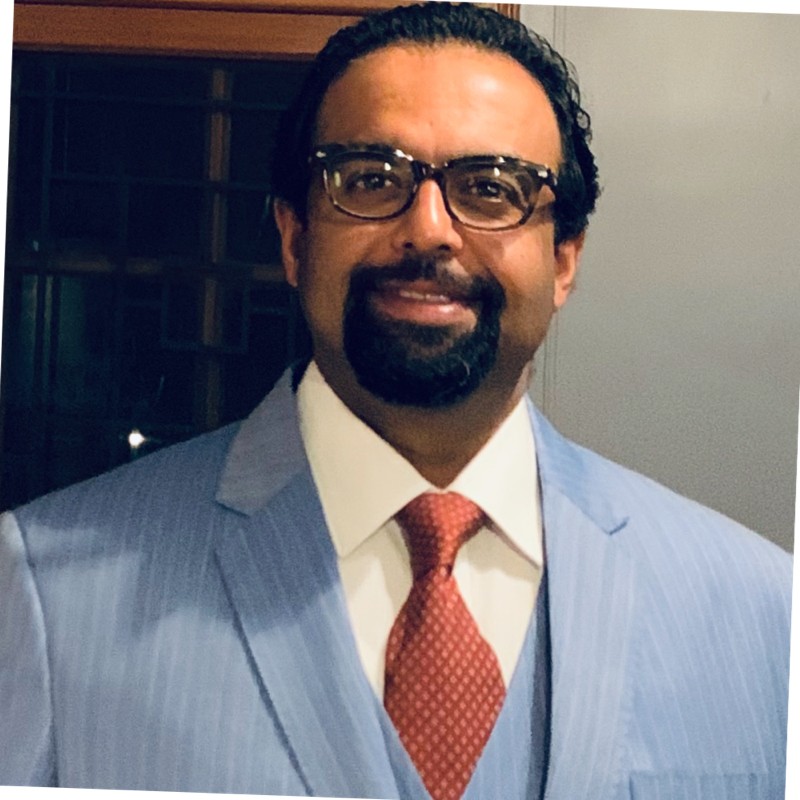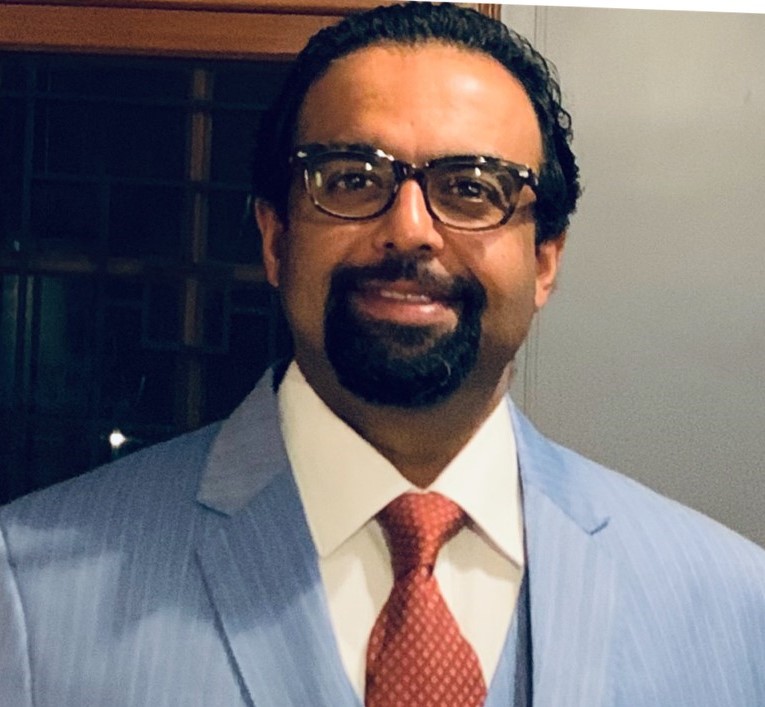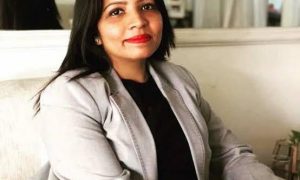This interview has been published by Namrata Singh and The SuperLawyer Team

We are extremely delighted to have you with us for this interview. Can you please introduce yourself, highlighting your journey from the establishment of AKS Law Associates in 1999 to becoming a prominent figure in the Indian legal fraternity?
I was in the computer field back in the mid-nineties. Back then, I used to occasionally accompany my folks to meet with lawyers, either seeking advice or to engage them in a matter. It was a learning curve, to understand the complexity of law and/or that it was near to impossible to have a clear vision of the road ahead. So, on the one side, I was professionally engaged in the computer field wherein we were promising solutions for business enterprises with a certain amount of predictability, efficiency and transparency whereas, the real-life legal problems had the dusty road ahead. Intrigued, I studied law. Fascinated by the subject of law and its complexity, I started my independent legal practice after training for about a year under my senior. For the first 10 years or so, I was predominantly engaged in chamber practice by advising clients in general corporate law and especially in Real Estate law. After 2009, I started attending Courts regularly and have been conducting matters before courts and tribunals across India. I have had the good fortune of appearing before the Supreme Court of India. There have been interesting cases addressed by me before International Arbitration Tribunals and the High Courts of Delhi, Bangalore and Chennai. As far as possible, I take instructions directly from the client and 9.9999 on 10, do not engage any Senior Counsel. I insist that my young colleagues in office must conduct a trial/argue a matter before the High Court. As far as possible practically, adjournment is not an option in our office. We have a small practice and keep a close connection with our clients. If we do not meet the client’s expectations, we own up to our shortcomings and do not pass the buck. What we try to do, in our first meet which is on the house, is to give the client a road map of their case’s journey to set expectations.
Your areas of practice range from international arbitration to corporate advisory. How do you navigate the diverse challenges posed by different legal domains, and what aspects of your practice do you find most fulfilling?
Every case is unique. I do not take up any matters concerning matrimonial disputes, service matters, direct and indirect tax. A client wants to hear the problem first and the solution thereafter, especially when it comes to corporate advisory in agreements. Due to our varied experiences in litigation, we can quickly identify the potholes and crossroads in an agreement and the challenges that may come up. Clients weigh in on our experiences in litigation to assist them in identifying clauses in an agreement that may be problematic and also offer solutions when such problems do arise. As we work very closely with clients and the owners/ top management we have some understanding of their businesses and what they expect out of a dispute. Once we have clarity as to what is a client’s expectation, then to advise them on the legitimacy of their expectations or what would be the best outcomes is quite straightforward. We do not take up a case that we do not feel that we can address. The broad spectrum of cases we take up is because we are confident that we can address the issue in the matter. This is backed by painstaking research and understanding as to what could be the possible outcomes. If it’s an untrodden field, we take a reasonable lead time and tell the client that we lack prior experience in the matter. Quite often, clients come to us in areas we have never worked with to consider if we would approach the matter differently and many a time this has worked well for the client.
Your commitment to pro bono cases and public interest litigation is commendable. What drives your passion for social justice, and Could you share a memorable experience where your legal expertise made a significant impact on social justice or community welfare?
India is a land of plenty of everything. For over a decade, I have chosen to provide free legal services for economically weaker persons and work towards creating an efficient legal structure in solid-waste management. There are many anonymous Indians who do a lot, yet they do not find a place on the newsfeed and they are not interested either. When we take on a pro bono case, the client gets equal treatment as a paid client. I believe that every legal professional must extend themselves to the community/ persons who need them the most. When you go and have a meal with a person who has had a legal closure of their case and you have had a small role in it, the satisfaction you get is much more than being paid by a corporate. I had a client who came to me with a matter where he had signed an agreement at terms that were patently unfavourable to him and he was forced to sign up for a song, he was in financially difficult circumstances and there was a good possibility that his land was going away. After being turned down by many prominent lawyers, he came to me. I confessed that I had no prior experience in dealing with the matter but I would put in an effort if he agreed. The matter was argued by me successfully from the Trial Court up to the Supreme Court and the client ended up with a fortune.
Your profile reflects a multifaceted personality with diverse interests such as equestrian sports, chess, running, yoga, and continuing education. How do these passions contribute to your life?
You have one life, live it and enjoy it to the fullest! I do enjoy exploring my mind and my fears. Many of my decisions have been taken after a long ride with my horse, Ziggy. The best place to be in the world is on horseback… ride one to know it. Playing chess at school helped me to be patient and analyse people’s moves. Chess is such a challenging game and no two games of chess or players are the same. I tried to be fit and I started yoga to experience my inner and external journey of mind, body and soul, with my teachers at the Iyengar school. Learning is a lifelong process and learning for me is to improve my mental gym.
Upholding the highest ethical standards is a hallmark of your practice. How do you ensure transparency for clients and fairness to opponents while navigating complex legal matters?
Character must not change. You might get a good reputation if you win many cases, which may not be true if you lose many. It’s about being honest to yourself and respecting yourself by asking what would you want as a client, opponent or colleague for that matter. I would always be ready to apologize to anyone if I have made a mistake or hurt someone. Etiquette to your client opponent and colleagues is not limited to good language skills, it’s about being clear and laying all cards on the table. This helps you to have a committed client and respect from your opponent and colleagues. It is very important to note that while you may not be aware, others observe you and learn from your good and bad. Therefore, it does not cost anything to be a good human being, so why not?
Your legal outreach initiative focuses on creating legal awareness and education in local communities. What inspired you to take up this initiative, and how do you see it making a difference in the lives of people?
Many decisions are because you do not know your rights. We spend time educating and creating legal awareness in communities to enhance people’s knowledge about their rights which would help them in making decisions. Some of the most basic legally binding decisions that stare you in the face, are because you did not know better. I have seen this at home. As we come from an army background, going to lawyers was not naturally a done thing unlike how businessmen utilise the services. My folks have had to suffer serious hardships because they were not informed of their legal rights. This has always been in the back of my mind. Therefore, as promised early in my career as a lawyer, I have always been engaged in legal awareness with communities, senior citizens and lonely parents.
You actively mentor younger lawyers to expand access to legal services. How do you approach mentorship, and what advice do you offer to aspiring lawyers entering the legal profession?
I refer to all lawyers as colleagues. Once a lawyer has a license to practice we are all equal. The same lawyer younger in age may turn out to be a judge before whom we have to appear and say ‘M’lord’. That’s the most interesting part of the legal profession, there are no limits as to what you can achieve. It is only dependent on you. If you want to be a paper pusher or adjournment lawyer – you can. Or, if you want to be a Palkhiwala – you can. I spend and invest a lot of my time with my colleagues, running through their cases and preparing them for the matter by reviewing drafts, and agreeing on approaches for trial or final hearing. This helps them to be confident as they are well prepared. My only request to them is to do the same for their colleagues.
What advice would you offer to the coming generation of lawyers, considering the evolving landscape of legal practice and the societal challenges we face? Could you share a personal or professional mantra that has guided you throughout your career and continues to inspire your work at AKS Law Associates?
The legal landscape is changing, it has increasingly no place for paper pushers or adjournment lawyers. The young, dynamic and hardworking professionals are dominating the field as either lawyers or judges. Technology is playing a larger role than ever. International arbitration is now becoming commonplace. If you want to find your niche and grow that practice, do it early. Have a general broader practice so that you can have an ear to the ground and earn a steady income and at the same time focus on growing your niche. Small is big! Clients want your time and they are willing to pay for it so long as you deliver. You don’t need a fancy name to your visiting card or a fancy office to start with; you need to focus on understanding how to resolve the client’s issue and after that it is a home run.
Get in touch with Ajesh Kumar Shankar-
























